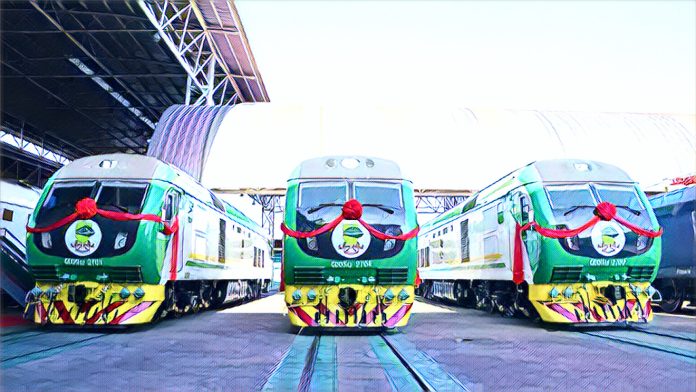Nigeria, the most populous country in Africa, has embarked on a railway modernization project that aims to connect its major cities and regions with a standard gauge rail network. The second phase of this project, the Lagos-Ibadan Railway, was completed in June 2021 by the China Civil Engineering Construction Corporation Nigeria Limited (CCECC). This railway, which is the first of its kind in West Africa, has brought significant benefits to the country’s economy, society, and environment.
The Lagos-Ibadan Railway is a 156-kilometer double-track line that links Nigeria’s economic hub, Lagos, with the industrial center of the southwest, Ibadan. It is part of the larger Lagos-Kano Railway, which will span 2,773 kilometers across the country when completed. The railway is also a crucial component of the Economic Community of West African States (ECOWAS) “Interconnectivity” railway network, which aims to foster regional integration and trade.
The railway project, which was funded by the Export-Import Bank of China, adheres to Chinese railway standards and achieved the fastest construction pace by a Chinese enterprise in West Africa. The CCECC employed over 5,000 local workers and trained hundreds of Nigerians in various roles related to engineering construction and railway operations. The project also adopted advanced technologies and equipment, such as the track-laying machine, the ballastless track, and the distributed power system, to ensure the quality and safety of the railway.
The Lagos-Ibadan Railway has been operating smoothly since its official commissioning by President Muhammadu Buhari on June 10, 2021. It has transported over 1.33 million passengers and introduced dedicated freight services, which have expedited the flow of import and export goods, alleviated port congestion, and contributed to the growth of Nigeria’s largest port, the Lagos Apapa Port. The railway has also reduced the travel time between Lagos and Ibadan from four hours by road to two hours by rail and lowered the transportation cost by 60 percent.
The railway has also brought positive impacts to the social and environmental aspects of Nigeria. It has improved the mobility and accessibility of the people, especially the low-income and vulnerable groups, who can now enjoy more affordable and comfortable travel options. It has also stimulated the development of export-oriented industries and businesses in the surrounding areas, creating more employment and income opportunities for the local communities. Moreover, the railway has reduced the greenhouse gas emissions and air pollution caused by road transportation, enhancing the environmental sustainability of the country.
The Lagos-Ibadan Railway is a flagship project of the Sino-Nigerian practical cooperation, which reflects the mutual trust and friendship between the two countries. It is also a concrete example of the Belt and Road Initiative, which promotes infrastructure connectivity and win-win cooperation among countries. The railway project has demonstrated the advantages and benefits of the Chinese railway technology and standards and has set a benchmark for the railway development in Africa and beyond.
The Lagos-Ibadan Railway is not only a transportation infrastructure, but also a bridge of friendship and a catalyst of development. It is expected to bring more prosperity and progress to Nigeria and the region in the future.
Source: The Guardian Nigeria News



